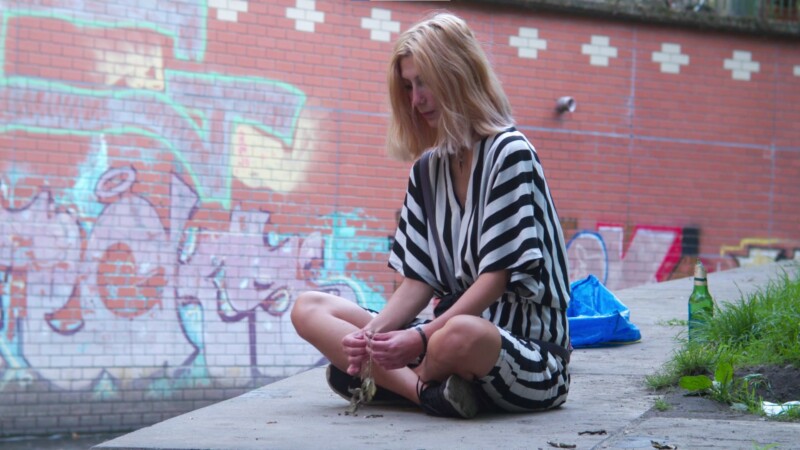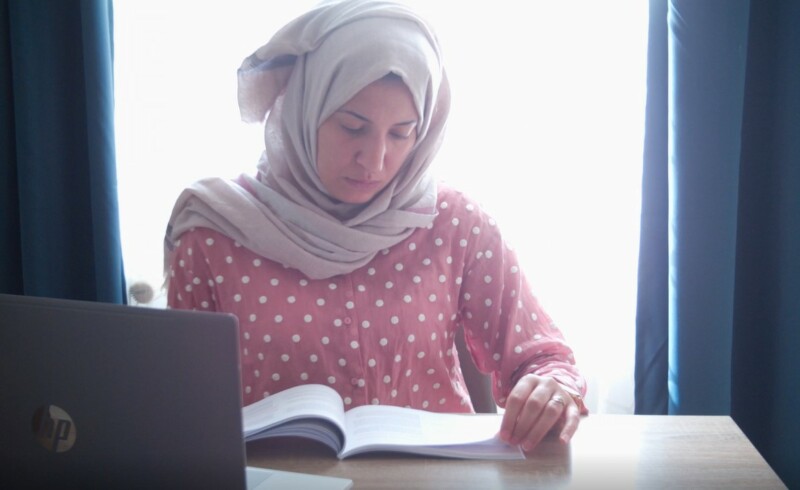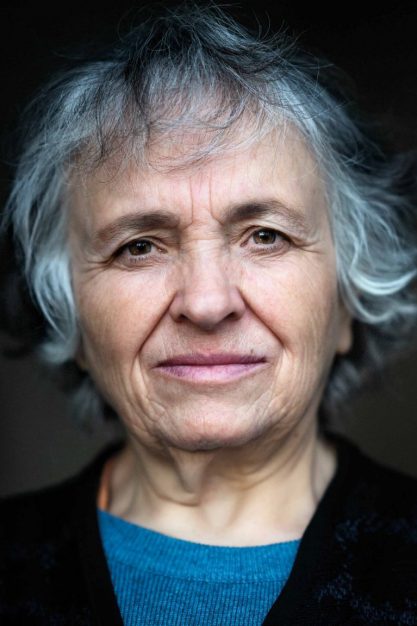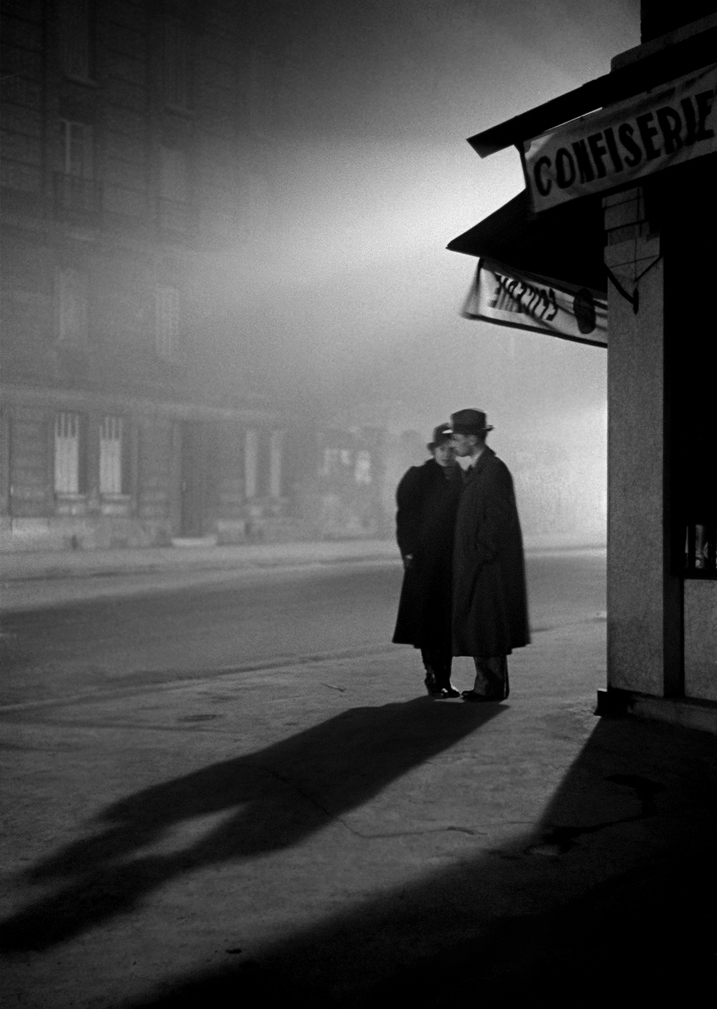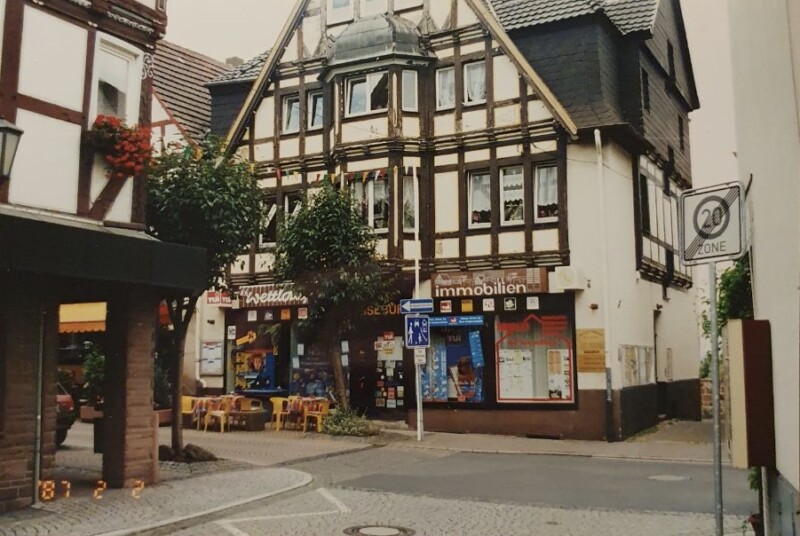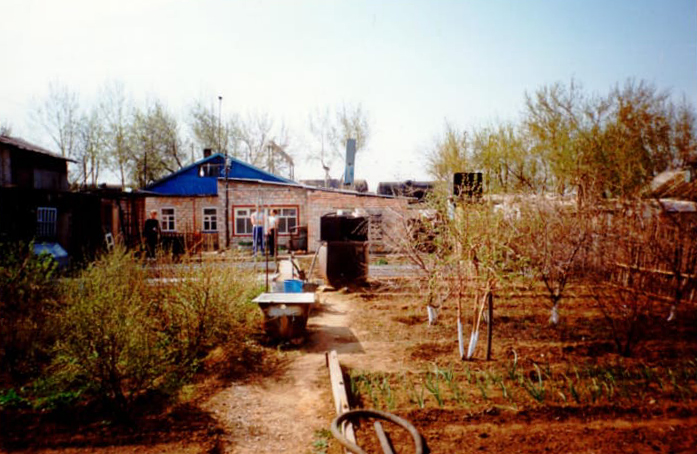Wir hatten zum Beispiel in der Schule in der achten Klasse Anatevka aufgeführt und mein Lehrer hatte mich gefragt, ob ich durch unsere Connection zur Synagoge jüdische Requisiten besorgen könnte, wie diese Gebetsschale und Kippas und sowas. Und ob ich ein bisschen was über die jüdische Gemeinde erzählen könnte. Und so richtig was über die Gemeinde konnte ich nicht erzählen, aber ich hab halt die Sachen dann geholt – und da hab ich mich so ein bisschen gefragt, zum einen, woher er das weiß, dass ich jüdisch bin. Ich weiß nicht genau, ob meine Eltern da vielleicht was erwähnt hatten oder wie er an die Info gekommen ist.
Dann wurde ich von einer Freundin mal sehr witzig so sehr leise und tuschelnd gefragt, ob das stimmt, dass ich jüdisch bin. Lange Zeit hatte ich auch gedacht, das ist was, was man auch nicht erzählen darf, dass wir jüdisch sind, dass es irgendwas ist, was geheim bleiben sollte. Weil es halt bei uns, glaube ich, nie so ein richtiges Thema war. Aber ich glaube nicht, dass es bei meinen Eltern kein Thema war, weil es ein Geheimnis ist, sondern einfach, weil sie dem nicht so viel Aufmerksamkeit geschenkt haben. Das ist halt so und da muss man jetzt nicht immer drüber reden. Bei mir als Kind war das aber sowas, dass man nicht drüber reden darf. Vielleicht auch, weil es irgendwie was Besonderes ist jüdisch zu sein, in meinem Kopf.
Dann gab’s letztens erst ne Situation, als ich einen neuen Pass beantragt hab und eine Geburtsurkunde von mir mitbringen musste. Und in den alten Geburtsurkunden – auch in meiner Geburtsurkunde – steht noch, dass meine Mutter jüdisch ist. Aber ich hab da nicht drüber nachgedacht und hab denen halt die Geburtsurkunde zum Kopieren gegeben und dann hat meine Mama zu mir gemeint, dass die das ja gar nichts angeht. Also dass es eigentlich eine Information ist, die sie jetzt nicht unbedingt durch alle Bürgerämter tragen möchte. Und dann musste meine Mutter auch einen Pass beantragen, bei demselben Bürgeramt und hat ihre Geburtsurkunde mitgegeben, weil die da eine Kopie von gebraucht haben und [meine Mutter] meinte, sie möchte aber nicht, dass die Daten ihrer Eltern dort aufgenommen werden. Und dann hat die Frau die da gearbeitet hat drauf geschaut und meinte: „Ah, ich verstehe“, und hat Jüdin und Jude raus gestrichen bei meinen Großeltern; hat das geschwärzt, aber die Namen halt drin gelassen. Das sind so Momente, wo ich irgendwie drüber nachdenke, dass das nichts Alltägliches ist, jüdisch zu sein. Dass das für viele Menschen einfach etwas ist, was irgendwie besonders ist und etwas ist, was halt geheim gehalten werden müsste, dass man das rausstreichen muss.
Ich glaube ich teile das auch einfach zu wenig, als dass es viele Menschen wissen würden und mich eben deshalb anders behandeln würden, ich erzähl das ja nicht jedem einfach so. Aber zum Beispiel wüsste ich jetzt auch gar nicht unbedingt, in welchen Situationen ich das erzählen würde. Also warum ich das mit Menschen teilen muss und man sieht’s mir nicht an, ich trag keine Davidssterne irgendwie an mir… Genau, deswegen weiß ich jetzt nicht genau, weshalb ich das so teilen würde.
For example, we performed Anatevka in eighth grade at school and my teacher asked me if I could get Jewish props through our connection to the synagogue, like a prayer shawl and Kippas and stuff like that. And if I could tell a little bit about the Jewish community. And I couldn’t really tell anything about the community, but I just got the things – and I wondered a little bit, for one thing, how he knew that I was Jewish. I don’t know whether my parents had mentioned something, or how he got this information.
Then I was once asked by a friend very funny, very quietly and whispering, whether it is true that I am Jewish. For a long time I had also thought that this is something that one is not allowed to tell, that we are Jewish, that it is something that should remain a secret. Because I don’t think it was ever really an issue for us. But I don’t think that it wasn’t an issue for my parents because it was a secret, but simply because they didn’t pay that much attention to it. That’s just the way it is and you don’t always have to talk about it. For me as a child, however, it was something you weren’t allowed to talk about. Maybe also because it is somehow something special to be Jewish, in my head.
Then there was a situation recently when I applied for a new passport and had to bring my birth certificate with me. And in the old birth certificates – also in my birth certificate – it still says that my mother is Jewish. But I didn’t think about it and just gave them the birth certificate to copy and then my mom told me, that it was none of their business, that this is information that she does not necessarily want to carry through all the citizens’ offices. And then my mother also had to apply for a passport at the same citizens’ office and gave them her birth certificate, because they needed a copy of it and [my mother] said that she didn’t want her parents’ data to be recorded there. And then the woman who worked there looked at it and said, “Ah, I see”, and crossed out Jew in my grandparents’ document; she crossed it off, but left the names. Those are the kind of moments when I think about how being Jewish is nothing ordinary. That for many people it is something that is somehow special and something that should be kept secret, that you have to cross out.
I also think I share [me being Jewish] too little, as that many people would know it and would treat me differently just because of that – I don’t tell it everyone. I wouldn’t necessarily know in which situations I would tell that. Why do I have to share this with people and it doesn’t show, I don’t wear a star of David on me… Yeah, so I don’t really know why I would share it.
K. moved to Germany as a child with her family as part of a contingent program for Jewish people from the former Soviet Union. Here she talks about occasions when she becomes more aware of being Jewish and how other people respond in a strange way to this part of her identity. At the same time, she doesn’t feel the need to tell people that she is Jewish – she doesn’t want to keep it a secret, but she doesn’t see any need to mention it either.
The interview was conducted, analysed and translated into English by Johanna Sünnemann as part of a cooperation between Freie Universität Berlin and the We Refugees Archive.
Under the supervision of Prof. Schirin Amir-Moazami, students in the seminar “Narratives of Refugees in the Light of Border Regime Studies” (winter term 2020/21) worked on critical methods of qualitative social research as well as literary and scientific texts on the topic of border regimes.
Border regime studies primarily focus on the political, economic and legal conditions that produce migration and borders as social phenomena in the first place.
In cooperation with the We Refugees Archive, the seminar participants conducted interviews with refugees about their everyday experiences in Germany or wrote articles on the common topics of the seminar and the archive.
